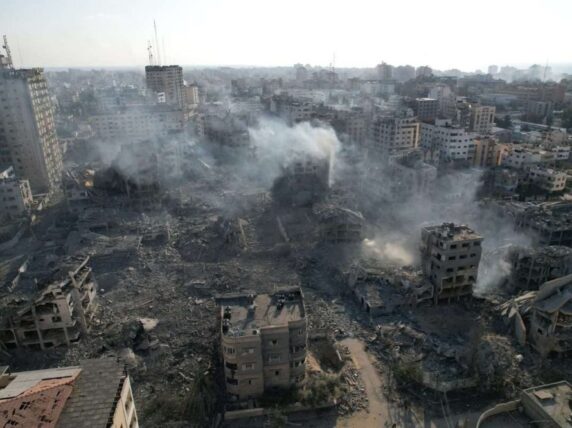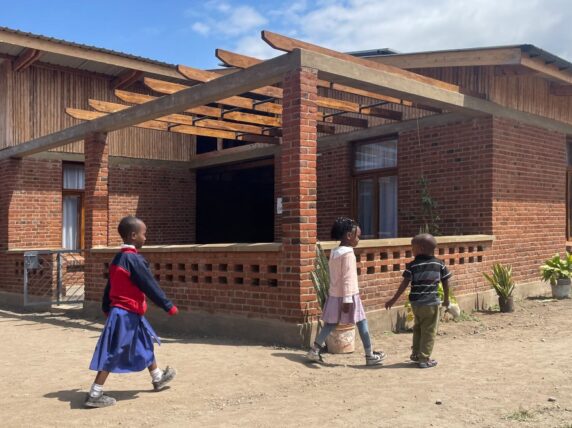What happened at Cop26?
On Saturday evening Cop26 finally closed, ending two weeks of frantic announcements, negotiations and opportunities for publicity.
Whilst there were some positive agreements over the fortnight, civil society, and even the Cop26 President Alok Sharma, have acknowledged the process did not deliver the hoped-for level of ambition and action.
Here is a summary of the key outcomes from the two weeks.
There was some progress on mitigation, but ambition was reduced at the last minute
The UNFCCC process, over time, is leading to increased commitments to reduce emissions. Before Paris we were on course to around 6°C of warming, after Paris that was down to around 4°C, and after Cop26 it’s around 2.4°C. However if you include the announcements that were made, that could potentially go further (could be 1.8°C) But the issue is that the announcements are not ‘locked’ into the reporting system and accountability of countries’ formal commitments yet, also known as nationally determined contributions (NDCs), so currently they are just warm words from World Leaders.
We now need to see them act. While Cop26 did not close the gap to limit global temperature rise to 1.5°C as needed, it did reaffirm that goal and commit to revisiting NDCs next year and the year after which is crucial – and basically the last chance – to get the emissions reductions needed by 2030 for the 1.5°C to be made real.
On fossil fuels, Cop26 saw more progress than previous Cops. For the first time, there is a direct reference to fossil fuels in the final decision text. This breaks new ground in the UNFCCC process. However, earlier stronger language on ending fossil fuels put forward by the UK presidency was watered down in the negotiations, and then weakened further by China and India in the final throes of the process, potentially putting the whole deal in jeopardy. Instead of the end of fossil fuels we were all seeking, we now have just a commitment to “phasing down” and not “phasing out” coal.
Outside of the formal negotiations, Cop26 saw more than 40 countries agree to shift away from coal – though how many of those were new commitments is unclear – and around 20 nations agreed to end public finance for coal internationally. Costa Rica and Denmark launched the Beyond Oil and Gas Alliance, joined by France, Greenland, Ireland, Sweden, Wales, and the Canadian province of Quebec, but not the UK, highlighting that action is needed on all fossil fuels, not just coal.
Climate vulnerable countries were not listened to on loss and damage
Thanks to the efforts of many countries and civil society, loss and damage had a bigger platform than at any previous Cop. Despite this, it was clear that the UK presidency, the US, and EU were not willing to take their requests seriously, and they excluded from outcomes the proposal from the G77 – representing around 6 billion people, especially the most climate vulnerable – for a Glasgow Financing Facility for loss and damage, even in the face of support from private philanthropists, and the demands of impacted countries and communities for urgent action.
Scotland however became the first country to commit £2 million of new and additional finance for loss and damage reparations, and whilst Wallonia in Belgium also joined this commitment, no nations followed.
On adaptation and climate finance, wealthy countries fell short
Shortly before Cop26, we learnt that the $100 billion annual commitment from high-income countries to support mitigation and adaptation for those on the frontline of the crisis – due to be met in 2020 – will not be met until 2023, three years after it should have come into force and 14 years after it was promised.
Subscribe to our newsletter
Our weekly email newsletter, Network News, is an indispensable weekly digest of the latest updates on funding, jobs, resources, news and learning opportunities in the international development sector.
Get Network NewsThis is far too late for countries who need to adapt now and is a failure on the part of those countries most responsible for causing climate change and most able to provide finance support. The final text made a collective agreement to double finance for adaptation, which is a welcomed and significant step forward, however this still falls short of the promised “balance” of climate finance between mitigation and adaptation – which should be $50bn a year.
These climate finance commitments also continue to be taken from existing Official Development Assistance (ODA) budgets, meaning low-income countries are paying elsewhere for the support they need to adapt to climate change and to pursue low carbon development pathways.
The “most inclusive Cop ever” turned out to be the least inclusive
Cop26 was marred with access and inclusion issues from the outset. The global pandemic, travel restrictions, and high costs prevented many country delegates and civil society participants from attending. Those who did run the gauntlet of the logistics challenges and managed to arrive in Glasgow found themselves shut out of the negotiating rooms and instead directed to a poorly functioning virtual platform instead.
Those voices vital for high ambition and justice in the UNFCCC process were marginalised, and lessons must be learned before we arrive in Sharm El Sheikh next year at Cop27 to ensure vulnerable countries voices are put at the centre of this process.
Category
News & ViewsThemes
Climate Change



